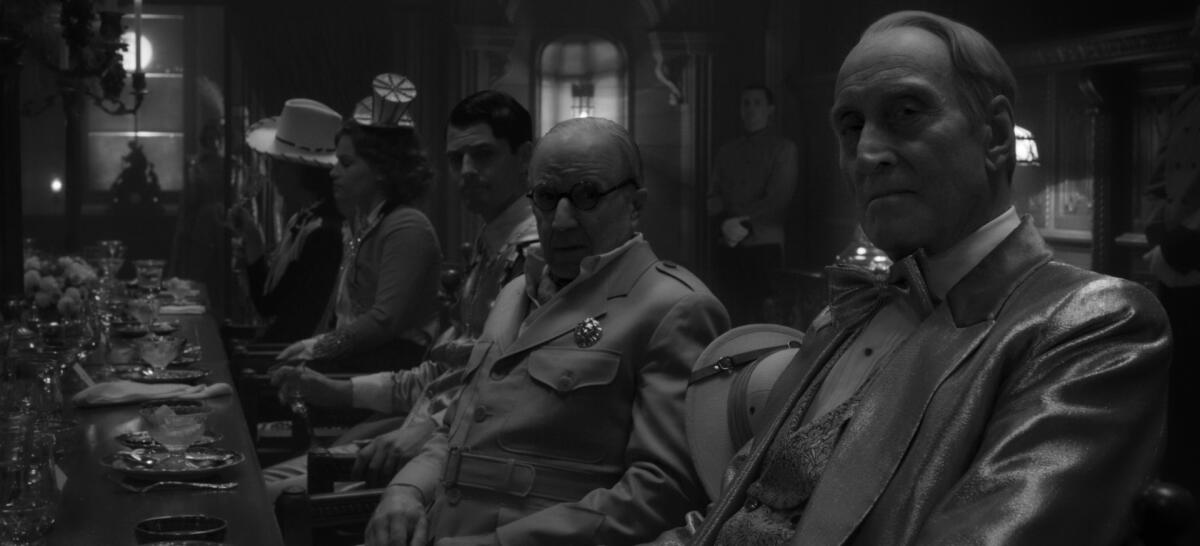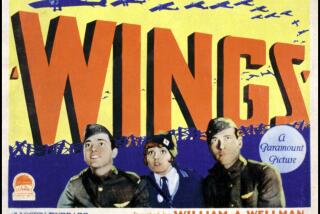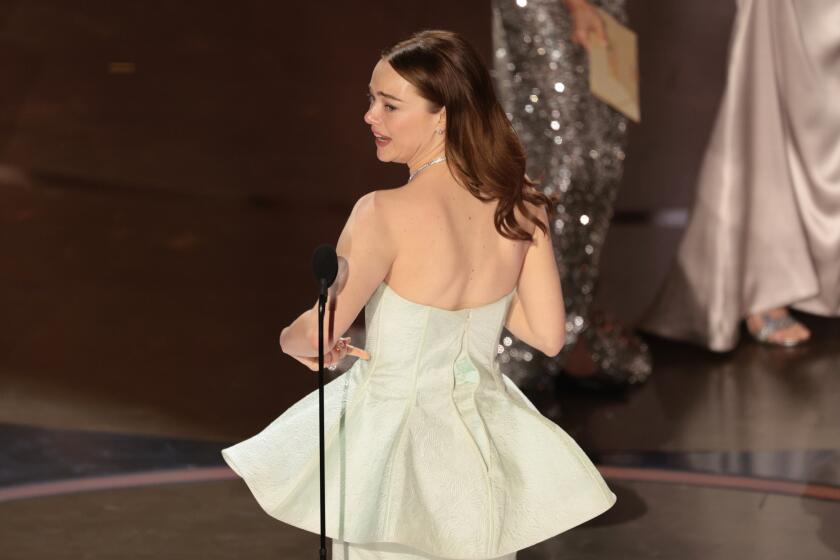Casting directors call to be included in the Oscars

The Emmys, Spirits, Canada’s Geminis, Australia’s AACTAs and Britain’s BIFAs and BAFTAs each bestow an annual prize upon casting directors in recognition of the central role they play in show business. At the Oscars, no such accolade exists. Some say that’s odd.
“It’s more than odd,” says Alexa Fogel, BAFTA-nominated for casting “Judas and the Black Messiah.” “It’s egregious.”
“We’re the first people hired,” adds Carmen Cuba, the go-to for Oscar-winning director Steven Soderbergh (coproducer of this year’s Academy Awards telecast) since 2000. “If a Nina Gold or Victoria Thomas signs onto a project, the industry immediately trusts it’s an important movie,” Cuba says. “We begin the conversation. At first, it’s ideas, lists, auditions. Then it’s deal-making, budgeting, scheduling. Sometimes we cast throughout the shoot. It’s collaborative, but all of film is collaborative. If 23 categories are eligible, we should be too.”
Not that important strides haven’t been made. In 2013, the Academy of Motion Picture Arts and Sciences established a casting branch that currently numbers 146 members. In 2016, an honorary Oscar was granted to industry legend Lynn Stalmaster, who died in February. These breakthroughs are in part related to focused, consistent lobbying by the Casting Society of America and its membership.
“It’s absolutely a priority for our organization and our members,” notes casting director Rich Mento — who, alongside his colleague in the field Russell Boast, serves as CSA’s co-president — via email. “We’ve dedicated significant resources toward pushing the conversation forward.” The first virtual ceremony of the CSA’s annual Artios Awards will stream on April 15.
But even with casting director David Rubin — who declined to comment for this story — serving a second term as president of the academy, that Oscar remains elusive.
“David’s in a very difficult position,” notes Lora Kennedy, a casting director who served on the Academy’s Board of Governors from 2013 to 2020. “We’re all super proud of David, our north star. But casting directors are the ones who are used to advocating for others. It’s hard for us to do it for ourselves.”
One common rebuttal to the call for inclusion is that the Oscars are already too long. “What you’re really saying is we’re not important enough to be given five minutes,” says Laray Mayfield, who cast David Fincher’s “Mank” and has worked with the award-winning director since 1986. “That’s upsetting, hurtful and disappointing. I consider myself as much of an artist as costumers, production designers, editors and writers. We work with human beings, not inanimate objects. The casting director brings the film to life.”
“In my mind, the clearest reason is still a lack of understanding, and perhaps in some cases a misunderstanding, of what a casting director’s job is and how it’s accomplished,” adds Mento. “The best casting directors leave no fingerprints.”
“Our work takes place behind closed doors,” agrees Kennedy. “It’s private, sacred. We can’t show you audition tapes, we can’t show you our notes. We’re not building anything. We’re not sewing anything. So there’s no tangible proof of our contribution except for what’s on the screen.”
But actors, producers, writers and directors surely know these pros are worth their weight in Oscar gold. “Directors put a lot of faith in us,” agrees Lindsay Graham Ahanonu, who was BAFTA-nominated alongside partner Mary Vernieu for casting “Promising Young Woman.” “They love collaborating, love our process, and are completely supportive of our being recognized for it.”
It might help the cause if silent allies were visibly vocal more often. “Martin Scorsese thanks Ellen Lewis all the time; she’s paramount,” says Kennedy. “Laray with Fincher; she’s part of his team. It would be nice if, when our colleagues publicly acknowledge other creatives, they included us. It’s embarrassing and exhausting for us to have to still be talking about this.”
Escalating activism is indeed what moved BAFTA to finally create its casting award. “The big missing link was casting directors,” notes BAFTA film committee chair Marc Samuelson. “There had been people advocating for it — and I don’t just mean casting directors. Then it really became a very serious discussion a few years ago. BAFTA listens to its members. It became obvious we had to do it. We’re only in the second year, and it already feels like we can’t quite remember that it wasn’t always there.”
“When Lindsay and I were nominated, I cried,” says Vernieu. “I didn’t expect to have that reaction, and I was emotional for three days.”
“When somebody says, ‘You deserve to be recognized, too,’ it’s a shock to the system — in a great way,” says Fogel. “It’s extraordinary to me that the work I did on “Judas” is being singled out by a creative body in another country. It’s great, but it’s bizarre.”
Still, optimism reigns. “I do think we’re getting there,” says Julia Kim, BAFTA-nominated for casting “Minari.” “All this noise and attention will lead to a positive place, all in good time. I feel we’re close.”
More to Read
From the Oscars to the Emmys.
Get the Envelope newsletter for exclusive awards season coverage, behind-the-scenes stories from the Envelope podcast and columnist Glenn Whipp’s must-read analysis.
You may occasionally receive promotional content from the Los Angeles Times.






